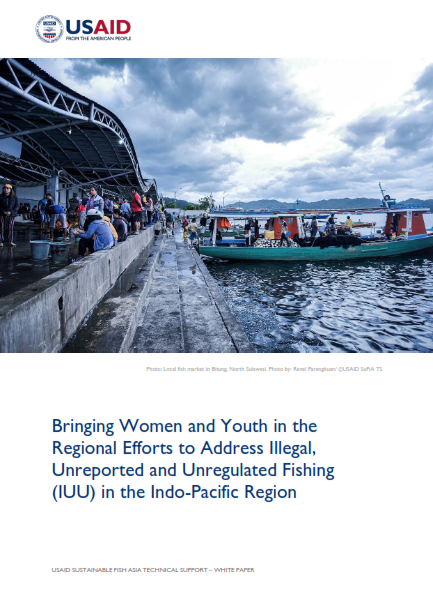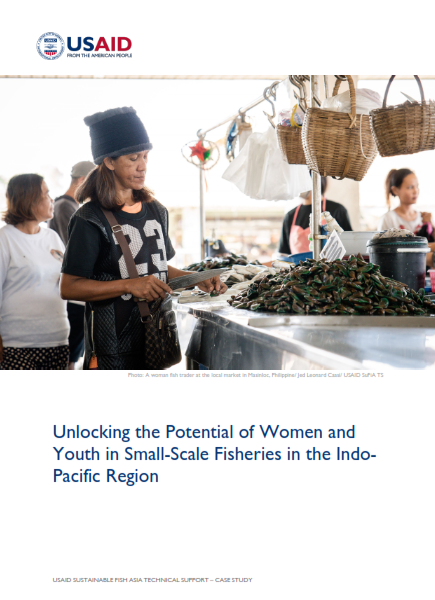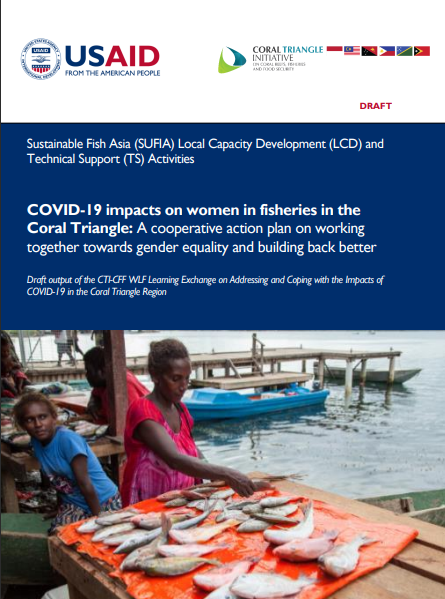7th MPA Regional Exchange revisits plans to effectively manage marine protected areas in the CTI Region
Sorong and Raja Ampat, Indonesia 8 October 2018. The Coral Triangle Initiative (CTI) recognizes the critical need to safeguard and manage the marine and coastal resources as people of the CTI region depend on coral reefs and fisheries for their food and livelihoods.
It is within this backdrop that the CTI Marine Protected Area Technical Working Group (MPA TWG) came together and discussed some of their plans and activities during the recent MPA Regional exchange held in Sorong and Raja Ampat in Indonesia.
The MPA TWG revisited and updated the MPA M&E indicators and database as well as their implementation. The M &E Indicators and database is important particularly in the design and planning of MPAs and MPA Networks throughout the CTI region by governments, NGOs and researchers. The database gives access to spatial information while encouraging the stakeholders to share their data to complete the gaps. This would reduce duplication in data collection and provide complete and current data.
The group also discussed the criteria and the branding for Sustainable Marine Tourism in CTI-CFF MPA System. The intention is to come to up with a unique ‘brand/image’ for MPAs in the CTI region distinct from other MPAs in the world. It will also serve as a guide for CT6 countries in the management of sustainable tourism in their respective countries. The Branding of MPAs of the region must take into account the conservation of biological and cultural diversity; sustainable use of ecological resources; support for local economies through increased local revenue; jobs for local populations through the use of local supplies and services; community empowerment by sharing participation in management local ecotourism activities; increased environmental and cultural awareness; and minimal environmental tourist industry impact on local resources.
The Participants of the Regional Exchange also had a field trip to Raja Ampat. According to Mr. Andi Rusandi, Chair of the CTI-CFF MPA Technical Working Group and the Director for Marine Conservation and Biodiversity of the Ministry of Marine Affairs and Fisheries in Indonesia, “marine protected areas are recognized as one of habitat preservation and conservation models in supporting the coastal communities and other related sector in local and national development. The importance of marine protected areas contribution to economic sector is obviously seen in Raja Ampat islands. As one of natural wonders in the world, Raja Ampat offers a community-based management on marine protected areas.”
Dr. Gregory Bennett, CTI-CFF Regional Secretariat Technical Senior Program Manager cited that the fieldtrip was an opportunity to see the importance of how the stakeholders at Raja Ampat are protecting their local marine resources as part of promoting sustainable tourism. “Sustainable coastal tourism can help preserve artisanal fishing communities, allow for subsistence fishing, protect the environment and make positive contributions to sustainable economic development,” Dr. Bennett said.
He added that increasing the size of marine protected areas (MPAs) has significantly contributed to the ability of the local people to manage their coastal marine resource and at the same time uphold food security with a healthy ecosystem. He called it “community self-governance,” which takes on a community-based approach and encourages local people to take ownership and become environmental custodians.
Furthermore, Dr. Bennett highlighted that “threats are increasing due to rapid population growth, expanding commercial interests and decision-making constrained by incomplete information. Events such as climate change and coral bleaching, cyclones and tidal waves have devastating impacts on the region's biodiversity. MPA Regional Exchange is an opportunity for participants to come together and discuss the current pressing issues affecting our coral reefs and associated fisheries. Also, he noted the importance of looking for opportunities to address the challenges and call for collaboration to ensure sustainable resources and livelihoods of the millions in this region is properly managed.
The 7th MPA Regional Exchange is organized by the MPA Technical Working Group with support from the CTI-CFF Regional Secretariat, Indonesia National Coordinating Committee and SEA Project Indonesia.
***
About CTI-CFF
The Coral Triangle Initiative on Coral Reefs, Fisheries, and Food Security (CTI -CFF) is a multilateral partnership of six countries: Indonesia, Malaysia, Papua New Guinea, the Philippines, the Solomon Islands, and Timor-Leste (CT6). The CT6 countries work together to sustain extraordinary marine and coastal resources by addressing crucial issues such as food security, climate change and marine biodiversity.
The CTICFF was established formally during the Leaders’ Summit in 2009 with approval of the leaders from the CT6 countries. They adopted the CTI Regional Plan of Action (CTI RPOA) which is a strategic action plan with five goals: (1) designation of effectively managed seascapes; (2) application of an ecosystem approach to fisheries management; (3) establishment of a fully functional marine protected area sysrem; (4) strengthening climate change adapatation adaptation and resilience; and (5) improving the status of threatened marine species.
About Regional Secretariat
The Regional Secretariat (RS) of the CTI-CFF is mandated to promote regional cooperation, knowledge sharing, and learning facilities within the six member countries of the Coral Triangle. The RS coordinates and monitors the progress of the implementation of the Regional Plan of Action (RPOA) goals. The RS coordinates and supports official meetings and events linked to the CTI-CFF process, including cross-cutting services in support of monitoring and evaluation, financial coordination, information management and outreach. It also coordinates the implementation of CTI-CFF RPOA and provides support to, and coordination with, NCCs, including advising the CTI-CSO on emerging opportunities and priorities to reaching the goals and targets of the RPOA. The RS also acts as the channel of communication and information sharing and foster networking among the Parties, CTI Partners and other organizations and donors in the efforts to promote the objectives of the CTI-CFF. The Regional Secretariat is currently based in Manado, North Sulawesi, Indonesia.
###
Media Contact:
Janet Rosalie Anne H. Polita
Communication & Information Manager
CTI-CFF Regional Secretariat www.coraltriangleinitiative.org
jpolita@cticff.org cc: regional.secretariat@cticff.org



